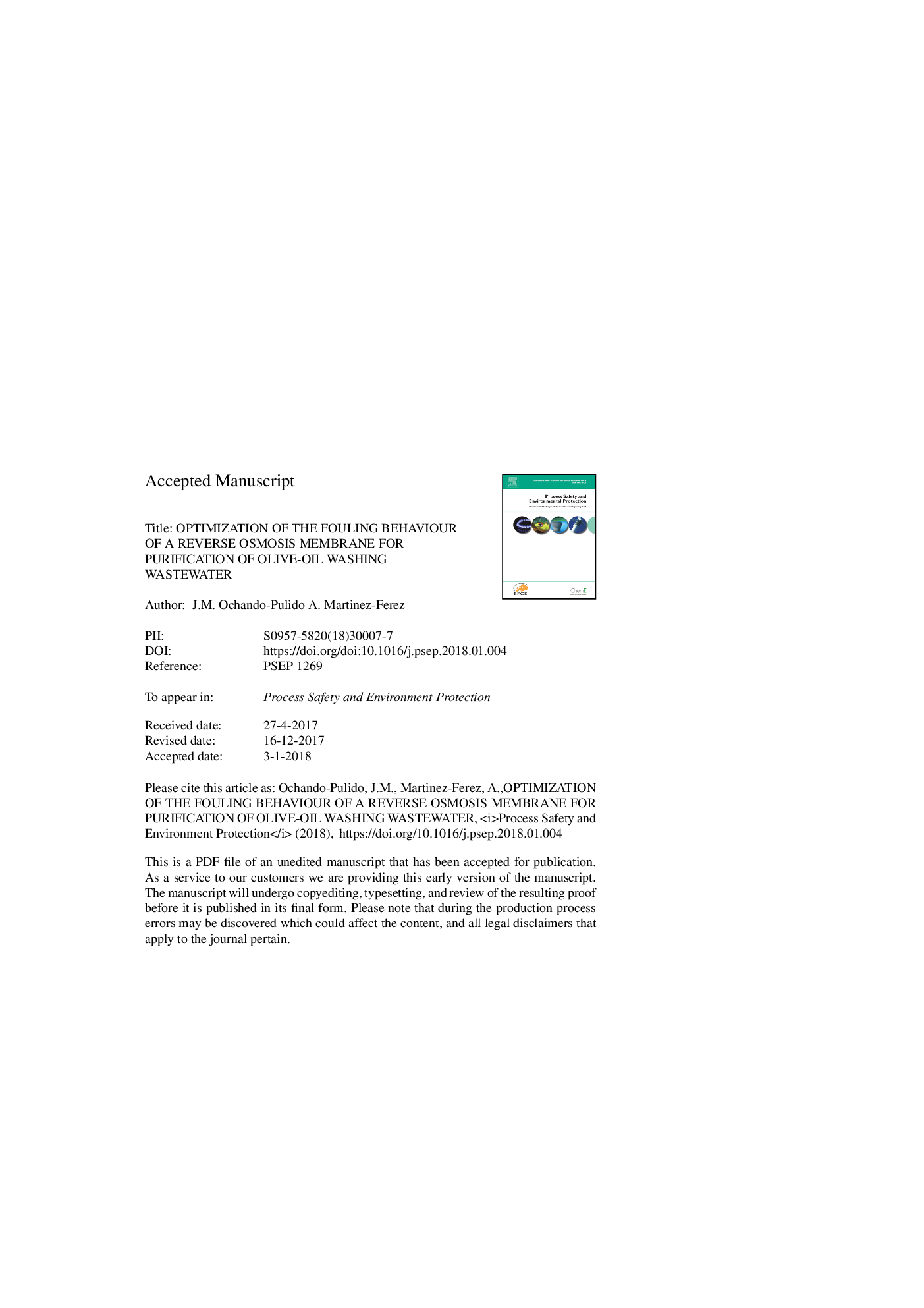| Article ID | Journal | Published Year | Pages | File Type |
|---|---|---|---|---|
| 6974224 | Process Safety and Environmental Protection | 2018 | 27 Pages |
Abstract
The core of this paper was the performance prediction and optimization of a reverse osmosis (RO) membrane process for purification of tertiary-treated olive-oil washing wastewater (OOW2TT). To this end, fouling control and minimization is irretrievably needed for successful implementation of membrane plants at industrial scale. Statistical multifactorial analysis showed all three operating variables - pressure (PTM), tangential flow (vt) and temperature (T) - affect the flux productivity of the membrane, confirming a statistically significant relationship among them at 95% confidence level. However, vt and T exhibited higher impact, according to the p-values withdrawn. On another hand, P and vt were noted to have very relevant effect on the membrane fouling rate, thus having key implications on the stable control and feasibility of the process. These results were mirrored by the response surfaces obtained. The optimized parameters - ambient temperature (24-25 °C), moderate operating pressure (25-30 bar) and turbulent tangential flow (3.1-3.5 m sâ1) - were found to provide a stable permeate flux (32.3 L hâ1 mâ2). These results highlight the proposed process could be operated successfully at ambient temperature conditions, boosting the economic efficiency of the RO purification of this kind of effluents.
Keywords
Related Topics
Physical Sciences and Engineering
Chemical Engineering
Chemical Health and Safety
Authors
J.M. Ochando-Pulido, A. Martinez-Ferez,
